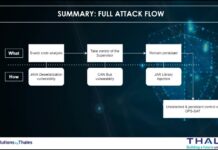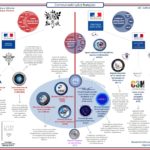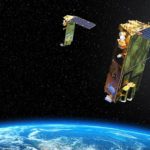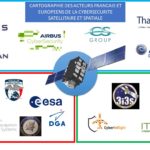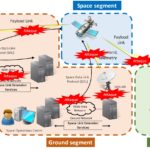Thales has been notified by the European Space Agency (ESA), on behalf of the European Union Agency for the Space Programme (EUSPA) and the European Union represented by the European Commission, of two major contracts for cybersecurity of Galileo Second Generation (G2G) programme.
Together, these contracts represent a total value of over 60 million euros (excluding options) and confirm the Group’s key role in the cybersecurity of the second generation of the Galileo programme as Thales will be in charge of all elements of the security and resilience of G2G.
On 17 May 2023, Thales was awarded the contract for security monitoring on the G2G system infrastructure.
This award follows the cybersecurity specification and design contract for the Galileo Second Generation system, which was confirmed on 17 April 2023. It will significantly improve the performance of the second-generation Galileo system, with the introduction of new services, stronger resilience functionality, and future additional features for the PRS1 navigation service for government users.
As a major partner of the EU Space Programme to ensure the security of the Galileo system, Thales, as a European leader in cybersecurity, has been working with the Agency for over 20 years to contribute to the security of the Galileo programme, Europe’s largest satellite programme, providing sovereign and critical positioning, navigation, and timing services.
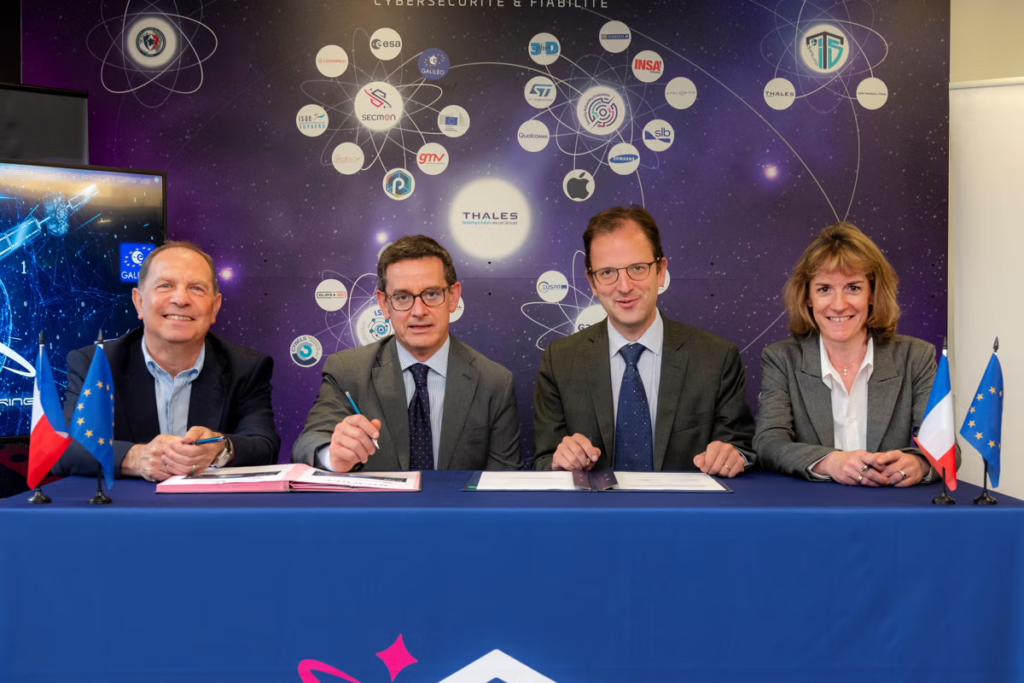
From left to the right: Sylvain Loddo – Head of Galileo Ground Segment Management Office | Ennio Guarino – Head of Galileo and EGNOS Programme Department | Lionel Salmon – Cybersecurity of Information Systems Director | Alexandra Porez – Thales GALILEO Programme Cybersecurity Director
Europe’s largest satellite system security monitoring programme
As part of G2G IOV SECMON, Thales is leading the consortium, including the Italian group Leonardo, to expand the scope of security monitoring and include the new assets in the G2G system. It will also introduce automated incident response and network traffic monitoring. In addition, the solution will be capable of storing significant amounts of incident response data. To meet this challenge, Thales will deliver a solution built on a scalable, flexible architecture derived from its Cybels range of security supervision products and incorporating big data capabilities.
A cybersecurity contract for better protection from quantum threats
New threats from quantum computers capable of breaking existing cryptographic algorithms have the potential to compromise long-term data security. Thales has been tasked by ESA within the consortium it leads to draw on its world-renowned cryptography expertise.
Under the “G2G System Engineering and Technical Assistance for security and PRS” contract, Thales will specify and verify the new cybersecurity for the G2G system – taking into account new threats to space systems, security maintenance requirements, improvements to the PRS service for government users– and prepare for system certification. One of the major challenges is to ensure a smooth transition from G1G to G2G while maintaining the level of security and performance offered by the G1G system for member states.
“Thales thanks ESA, EUSPA and the European Commission for its continued confidence in the Group’s expertise in space systems and cybersecurity for critical systems. These security contracts for Galileo Second Generation will bring Europe a more robust system with better protection from quantum threats – a major challenge for the space industry in the decades ahead – and will draw on the Group’s unparalleled big data expertise to provide more effective security monitoring of the world’s leading satellite positioning system,”
said Pierre-Yves Jolivet, VP Cyber Solutions, Thales.
The cybersecurity of satellite systems has become a growing concern for satellite operators and space agencies, particularly against a backdrop of geopolitical tensions. Today, thousands of satellites are in orbit, and it is estimated that 10,000 more will be added over the next 10 years, due to the multiplication of uses, from everyday life with the Internet of Things to defense applications.
Through the signing of these two contracts, Thales’s expertise in scalable and flexible architecture and security equipment and protection against cyberattacks will enable the G2G program to strengthen its ability to detect and respond to new cyberthreats. The end-to-end solution proposed by Thales experts will contribute to the development of greater security and resilience of satellites.
In parallel, Thales Alenia Space has been notified of major contracts to design and build with its European consortium the G2G Ground Mission Segment and execute System Engineering Activities. The company will also provide 6 of the 12 satellites of the constellation.
Cybersecurity at Thales
As a global leader in cybersecurity, Thales is involved at every level of the cyber value chain, offering solutions ranging from risk assessment to protection of critical infrastructure, supported by comprehensive threat detection and response capabilities. Its offer is built around three families of cybersecurity products and services, which generated sales of €1.5bn in 2022:
- Global security products around the CipherTrust Data Security Platform the SafeNet Trusted Access Identity & Access Management as a service solution, and the broader cloud protection & licensing offerings
- Sovereign protection products including encryptors and sensors to protect critical information systems
- Cybels solutions portfolio, a complete suite of cybersecurity services including risk assessment, training and simulation, and cyberattack detection and response
Drawing on more than 40 years of experience in cybersecurity and space activities, Thales applies the principles of « cybersecurity by design » to the products it develops for satellite operators and space agencies. With more than 4,000 cybersecurity specialists, Thales helps to ensure the security of satellite systems for national and European space programmes – in particular Europe’s Galileo satellite navigation programme – and at the international level. With its combined expertise in cutting-edge satellite systems and cybersecurity solutions relying on the latest military technologies, Thales offers governments, institutions and enterprise customers a comprehensive range of cybersecurity solutions to guarantee robust protection of all the elements of a space system. In April 2023, Thales demonstrated its expertise in offensive security at CYSAT, managing to take remote control of an ESA demonstration satellite, in order to anticipate and respond to current and future threats.
About Galileo
Galileo is European Union’s global navigation satellite system (GNSS). Operational since 15 December 2016, Galileo’s initial services are fully interoperable with GPS, while offering users an expanded range of performance and service levels, along with far more accurate positioning. All smartphones sold in the European Single Market are now guaranteed Galileo-enabled. In addition, Galileo is making a difference across the fields of rail and maritime transportation, agriculture, financial timing services and rescue operations. Unlike the American GPS, Russian GLONASS and Chinese Beidou satellite navigation systems, which are operated by the armed forces, Galileo is the world’s only GNSS system under civilian control.
To date, Galileo is scheduled to comprise a constellation of up to 38 first-generation satellites, transmitting stations for satellite control and telemetry, transmitting stations for mission data, two security monitoring centres (in Saint-Germain-en-Laye and Madrid), two system control centres (Oberpfaffenhofen and Fucino) and 16 stations for orbit control and clock synchronisation.
Galileo Second Generation is designed to be flexible and adapt to user needs in the decades ahead. It will also be more robust to withstand the challenges of a constantly changing world, especially the threats of jamming and cybercrime. With unrivalled accuracy and additional authentication capabilities, Galileo will be the world’s most advanced GNSS system.
*****
In parallel, Thales Alenia Space has been notified of major contracts to design and build with its European consortium the G2G Ground Mission Segment and execute System Engineering Activities.
Galileo is Europe’s global navigation satellite system (GNSS). With unrivalled accuracy and additional authentication capabilities, Galileo will be the world’s most advanced GNSS system.

